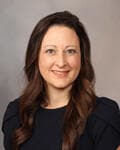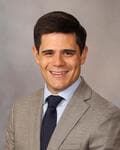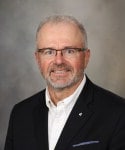Curriculum
/prod01/channel_2/media/mccms/content-assets/academics/residencies-and-fellowships/abdominal-transplant-surgery-fellowship-mn/curriculum/Physician-fellow-organ-transplant-1024X512-WF3405965_0248.jpg)
The intent of our Abdominal Transplant Surgery Fellowship is to produce proficient and competent physicians. That does not mean just knowing the operations, it means performing them.
All staff aim to serially progress you through each transplant operation until you can complete the operation on your own. Of course, you will progress at your own rate, but our job as educators is to understand this and to give more responsibility and autonomy as you become ready for it.
Clinical training
During the two years of clinical training in the Abdominal Transplant Surgery Fellowship, you will spend the first year focusing on kidney and multi-organ transplantation along with some time on liver. The second year is focused on liver transplantation as well as laparoscopic donor nephrectomies with continued time on kidney transplantation. Time is also built into the schedule for research and education on top of the clinical training. During your second year, fellows will complete a transplant rotation at Mayo Clinic in Arizona.
Overall, the operative experience during fellowship at Mayo Clinic is robust. This includes a large volume of cases, including deceased donor and living donor transplants, but also a wide variety of technical complexities. In addition, fellows will become experienced assessing and using marginal donor grafts including independent DCD procurement and cannulation for machine perfusion.
Our recent graduates have finished with the following average case numbers.
| Year | Kidney | Liver | Donor |
|---|---|---|---|
| 2025 | 95 | 64 | 35 |
| 2024 | 121 | 67 | 62 |
| 2023 | 121 | 58 | 71 |
| 2022 | 126 | 55 | 43 |
| 2021 | 115 | 48 | 35 |
Rotation descriptions
Learn about each clinical rotation.
Kidney-pancreas transplant service
The goal of this rotation is to provide experience in kidney transplantation (recipients of both living and deceased donors) and pancreas transplantation (recipients of deceased donors). The major emphasis of this rotation is surgical experience as well as the postoperative management of these patients and their complications.
The surgical fellows become familiar with:
- Pre-transplant evaluation of potential recipients
- Operative planning
- Immunosuppressive management
- Medical complications of transplant recipients
Unique aspects of the kidney transplant program at Mayo Clinic's campus in Rochester, Minnesota, include:
- Positive crossmatch and ABO-incompatible kidney transplantation
- Pediatric transplantation
In addition, the fellows will have experience with one of the largest volumes of living donor kidney transplant programs in the country.
Liver transplant service
The goal of this rotation is to provide significant experience with liver transplantation, including:
- Pre- and post-operative management of adult and pediatric recipients
- Deceased donor whole organ liver transplantation
- Deceased donor split organ liver transplantation
- Living donor liver transplantation
- Pediatric liver transplantation
The surgical fellows also become familiar with common medical issues in liver transplant patients, such as:
- Management of hyponatremia
- Spontaneous bacterial peritonitis
- Intractable ascites
- Addiction issues
- Fulminant hepatic failure
Lastly, fellows are exposed to innovative treatments, including:
- Transplantation for extrahepatic cholangiocarcinoma
- Domino transplantation for amyloid
Donor service
The aim of this rotation is to provide experience with multi-organ abdominal procurements and living-donor nephrectomy. As a fellow, you also gain additional experience with hemodialysis access and will have time to dedicate to research during this rotation.
Didactic training
The Abdominal Transplant Surgery Fellowship has a strong didactic program with many weekly meetings, including:
- Morbidity and Mortality: Monthly Transplant Center conference where interns, residents, fellows, and specialty staff discuss one or two cases led by a fellow, with expert commentary from various fellows and staff.
- Transplant Grand Rounds: Weekly Transplant Center conference where all staff, fellows, residents, and other guests attend, with a variety of intramural and invited expert speakers.
- Kidney and Liver Selection Committees: Weekly meeting where Transplant Center staff discuss potential transplant recipient and donor approval.
- Abdominal Transplant Fellows Education Conference: Biweekly educational meeting that is specifically geared toward surgical fellows that involve transplant hepatology, transplant nephrology, and surgical staff.
- Journal Club: Monthly Abdominal Transplant conference where interns, residents, fellows, and specialty staff discuss a variety of journal articles related to aspects of transplantation surgery.
- Deceased Donor Review: Biweekly meeting where abdominal transplant staff discuss past deceased donor surgeries.
Additional didactic opportunities include Surgery Grand Rounds and innumerable basic science lectures complementing the Mayo Clinic academic atmosphere.
/prod01/channel_2/media/mccms/content-assets/academics/residencies-and-fellowships/abdominal-transplant-surgery-fellowship-mn/size-1024X512_new-fellows-faculty-in-the-hallwayWF690504_0172.jpg)
Research training
Your research opportunities at Mayo Clinic are outstanding. You are encouraged to participate in research projects with the consulting staff during the Donor Service rotations.
The research experience includes opportunities for research in:
- Endothelial cell biology
- Immunology
- Artificial liver support devices
- Cholangiocarcinoma
- Transplantation obesity
- Other basic research projects in all facets of transplantation.
Research is a core value for a well-rounded academic surgeon.
What research topics are faculty and fellows currently working on?
Faculty research topics
|
|
Randi Ryan, M.D.Faculty and fellowship alum, class of 2023 My research interests include access to kidney transplant, post-transplant immunosuppression, and patient reported outcomes after transplant. |
|
|
Alex Cortez, M.D.
Faculty My research spans clinical outcomes in transplantation and surgical education. In the clinical realm, my work focuses on understanding practice variation and optimizing the use of donor organs—leveraging large databases and center-level data to evaluate outcomes in liver and kidney transplantation. I am particularly interested in how medical factors, human behavior, acceptance patterns, and allocation policies intersect to influence organ utilization and equity in access. In surgical education, I study how surgeons learn and develop expertise, integrating concepts from psychology and performance science to optimize training. My dual research focus reflects a commitment to improving both the science of transplantation and the way future surgeons are trained. |
|
|
Scott Nyberg, M.D., Ph.D.Faculty The biggest challenge in the transplant field is the shortage of donor organs. My research is aimed at solving the organ shortage through tissue engineering, cell therapies, and other regenerative treatments such as novel drugs and/or a liver support device. |
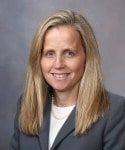 |
Julie Heimbach, M.D.Faculty and fellowship alum, class of 2004 My primary research interests are centered on liver transplantation in the setting of malignancies such as hepatocellular carcinoma and cholangiocarcinoma, as well as issues related to obesity and transplantation, and living donor transplantation. We have developed and optimized novel clinical protocols to allow for successful transplantation in patients with medically complicated obesity and end-stage liver disease. I have also partnered with colleagues to optimize outcomes following neoadjuvant chemoradiotherapy followed by liver transplantation in patients with cholangiocarcinoma. I have also been involved with studies on long-term outcomes of living donor and living donor transplant recipients. |
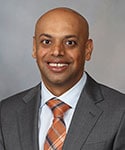 |
Ty Diwan, M.D.Faculty and fellowship alum, class of 2011 My research has focused on the role obesity plays in transplantation, including access to transplant and recipient outcomes. I have specifically studied the impact of bariatric surgery on transplantation and how it can be best utilized to improve patient and graft survival. In addition, I am interested in ethics within transplantation and has multiple projects that involve selection committee ethics and living donor age restrictions. |
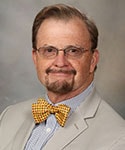 |
Mark Stegall, M.D.Faculty I lead a research group whose major interests are improving long-term renal allograft survival and understanding the biology of antibody-secreting plasma cells (the source of alloantibody). Recent efforts include developing Deep Learning Networks to automate the assessment of renal allograft biopsies (basically teaching a computer to read a kidney biopsy, part of our ongoing surveillance biopsy cohort with >15,000 biopsies), investigating the long-term outcomes of patients with obesity and/or Type 2 diabetes, and developing novel agents that deplete plasma cells. |
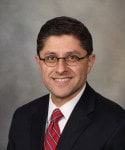 |
Timucin Taner, M.D., Ph.D.Faculty and fellowship alum, class of 2012 My clinical practice focuses on liver transplantation, and my laboratory research is aimed primarily at understanding the interaction between the transplanted liver and the recipient's immune responses. Our research has demonstrated that liver allografts induce hyporesponsiveness to alloantigens in the recipients, providing immunoprotection to simultaneously transplanted organs. These findings have recently paved the way for an innovative trial of cell-based therapy in kidney transplant recipients with the goal of limiting recipients’ exposure to immunosuppressive medications. |
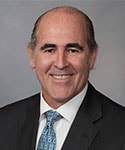 |
Mikel Prieto, M.D.Faculty My clinical research focuses on simultaneous laparoscopic bilateral native nephrectomy at the time of kidney transplantation. We published two papers in 2020 describing this novel surgical approach and associated outcomes, with more publications underway. |
Call frequency
Each fellow takes call approximately every other weekend following the ASTS Managed Time Policy.
Patient population
There is no denying that the transplant patient population is one that can be complex and challenging clinically. The key is to have appropriate mentorship for our fellows, so they feel comfortable as they grow into their knowledge of transplant. We encourage fellows to contact staff with any questions, day or night.
Teaching opportunities
Residents and other trainees are always rotating on the transplant service and fellows will have the opportunity to provide teaching to residents and to junior fellows. It is our firm belief that teaching relevant subject matter helps trainees transform into experts. Teaching is done routinely on rounds and in didactic settings. Fellows are encouraged to lead teaching sessions and staff are always present to assist.
Evaluation
To ensure that fellows acquire adequate knowledge and develop their technical skills, performance is monitored carefully throughout the Abdominal Transplant Surgery Fellowship. Fellows are evaluated formally by all surgical faculty members. As per ASTS guidelines, all fellows have operative and non-operative milestones assessed every six months. In addition, quarterly meetings will be held with the program director. Fellows also evaluate the faculty regularly to ensure that educational needs are being met.
